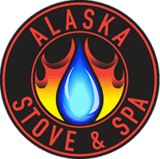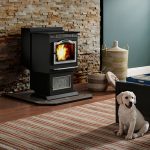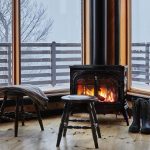Clean Burning and EPA Laws
Last year the EPA (Environmental Protection Agency) made some distinctions regarding how efficient stoves must be in order to be sold. Why? Burning wood (or pellets or gas or anything) creates pollution that soils our environment and our health. There are very few ways to heat a home that doesn’t create pollution, none of which are easy to set up. So instead, we focus on selling stoves that are as efficient as possible.
Catalysts
An efficient stove is one that puts heat into your home without consuming a lot of fuel. Because they’re burning less, these stoves are also creating less emissions. They do this by getting the most out of the fuel you put in. The stoves do this in one of three ways: by using a catalyst, no catalyst, or a hybrid method.
Catalytic stoves pass the smoke through a filter inside of the stove, which is either stainless steel or a coated ceramic honeycomb. Here they ignite and burn for a second time. Catalytic stoves produce a long, even heat, but require slightly more knowledge to work properly. Non-catalytic stoves are just that; they have no catalyst, but burn at a hotter rate, creating a good environment for complete combustion. Hybrid stoves do both. When it comes to finding a stove that passes EPA standards, any of these will work.
EPA Laws
The law that the EPA put into place makes stove buying very simple for consumers. If a stove does not meet the clean-burning standards, then it cannot be sold. This means that the manufacturer won’t be making it and dealers should not be selling it- you won’t find it in our showroom. If you have an old stove in your home that wouldn’t be up to the EPA’s standards, don’t worry! You’re welcome to keep it. But, when you’re ready for an upgrade, the stove that you’ll find will be much less smokey, will burn more evenly, will require less fuel, and will be better for your health and the environment.
If you live in Fairbanks, you might be more familiar with these regulations. Fairbanks has the most polluted air in the US because the harshness of winter weather and limited natural gas resources mean that a lot of wood is burnt in residential homes. The local government has been trying for over a decade to clean that air up in a number of controversial moves. But one thing that isn’t controversial is upgrading your appliance to something with up-to-date clean burning standards.




